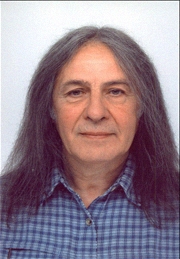Tutor HuntResources Maths Resources
A Mathematician`s Apology
An easy to read attempt to clear up the confusion between arithmetic and maths
Date : 04/10/2015
Author Information

Uploaded by : Peter David
Uploaded on : 04/10/2015
Subject : Maths
That is the title of a book by G H Hardy (Professor of Geometry in Oxford 1919, onwards and Professor of Mathematics in Cambridge 1931, onwards). In the book`s title, Hardy uses the word "apology" in the sense of a formal justification or defence of his life`s work in mathematics (as in Plato`s Apology of Socrates), not in the sense of a plea for forgiveness. I found this book a wonderful and inspiring book to read in 1969 and still do but the theme of the book has little to do with this post. However, I often wonder what would Hardy think of the confusion and misuse of people confusing maths with arithmetic, which is simply a branch of maths. Many high level maths texts don't even include any actual arithmetic and are written at a philosophical level.
I find it very common to be asked to check a list of numbers, such as on a receipt in a tea shop, because I am said to be am good at maths. Flattering as that is, it is close to a non sequitur, as I am being asked to perform a simple or not so simple arithmetical task. Furthermore, I am only better than average at mental arithmetic. Without a quill pen and parchment paper, I would only be able to estimate what 793 * 2549 equals. I would of course consider it as 800 * 2500 = 2,000,000 whereas a calculator would give an exact figure of 2,021,357 which is only 1% higher, approximately, than my estimate which only took about 7-10 seconds! Checking a bill or adding up a shopping list is basically an arithmetic task (using base 10) but the estimation process and calculation of the percentage difference, in the example above, is "maths" albeit simple maths. (For anyone interested in mental arithmetic look up the Mental Calculation World Cup)
Even scientific academics come out with similar comments. After much persuasion and a strong letter of support from Professor who was the head of our research department, I was accepted onto an M Sc in General Biochemistry and Molecular Biology. The head of Biochemistry department wished me all the best with the course adding that I would find the Biochemistry very difficult as my first degree was in maths. He smiled and added "but the lab work will be easy as you are good at maths". Both comments turned out spot on but, in reality, most of the lab work used little more than arithmetic!
The definitions and etymological derivations below have been taken from on-line dictionaries are at an attempt to clarify the issue as well but may well confuse the issue! Good reading.Feedback is welcome.
Mathematics: The science of number, quantity, and space (shapes), either as abstract concepts (pure mathematics), or as applied to other disciplines such as physics and engineering (applied mathematics). "Everyday" branches of mathematics include arithmetic, algebra, geometry, trigonometry and statistics. Etymology: Late 16th century: plural of obsolete mathematic `mathematics`, from Old French mathematique, from Latin (ars) mathematica `mathematical (art)`, from Greek mathematike (tekhne), from the base of manthanein `learn`.
Arithmetic: The use of numbers in counting and calculation. Etymology: Middle English: from Old French arismetique, based on Latin arithmetica, from Greek arithmetike (tekhne) `(art) of counting`, from arithmos `number.
Algebra: The part of mathematics in which letters and other general symbols are used to represent numbers and quantities in formulae and equations. Etymology: Late Middle English: from Italian, Spanish, and medieval Latin, from Arabic al-jabr `the reunion of broken parts`, `bone-setting`, from jabara `reunite, restore`. The original sense, `the surgical treatment of fractures`, probably came via Spanish, in which it survives; the mathematical sense comes from the title of a book, 'ilm al-jabr wa`l-muqabala `the science of restoring what is missing and equating like with like`, by the mathematician al-?warizmi.
Geometry: the branch of mathematics that deals with the measurements and relationships of lines, angles, surfaces and solids. Etymology: Middle English: via Old French from Latin geometria, from Greek, from ge `earth` + metria (see -metry)
Trigonometry: The branch of mathematics dealing with the relations of the sides and angles of triangles and with the relevant functions of any angles. Etymology: Early 17th century: from modern Latin trigonometria. Trigon: Early 17th century (in the sense `triangle`): via Latin from Greek trigonon, neuter of trigonos `three-cornered`. And From Greek -metria, from -metres `measurer`
Statistics: The practice or science of collecting and analysing numerical data in large quantities, especially for the purpose of inferring proportions in a whole from those in a representative sample. Etymology: From the German adjective statistisch, and the noun Statistik. This German noun was used by a German writer called Aschenwall in 1748 as a name for the area of knowledge dealing with the constitutions and resources of the various states of the world. French writers of the 18th century refer to Aschenwall as having introduced the word, which then gave rise to French statistique. In English the word was first found in the phrase statistic science (a collection of numerical facts to do with economic conditions) in the late 18th century.
This resource was uploaded by: Peter David
